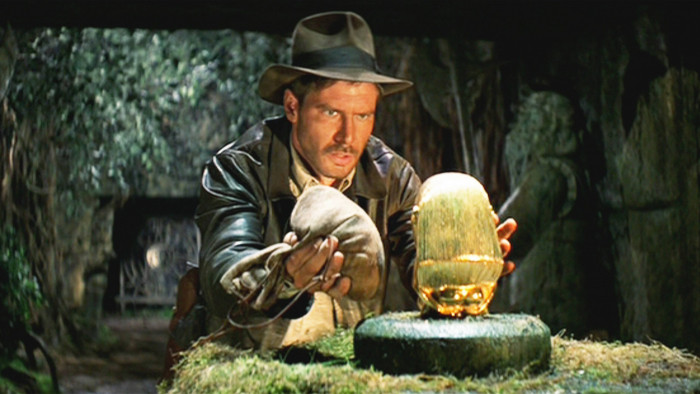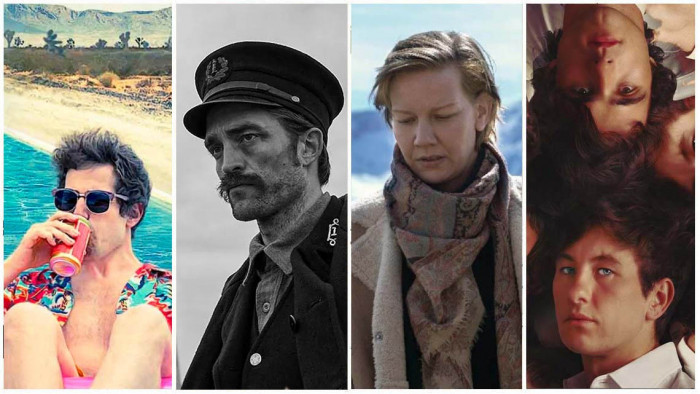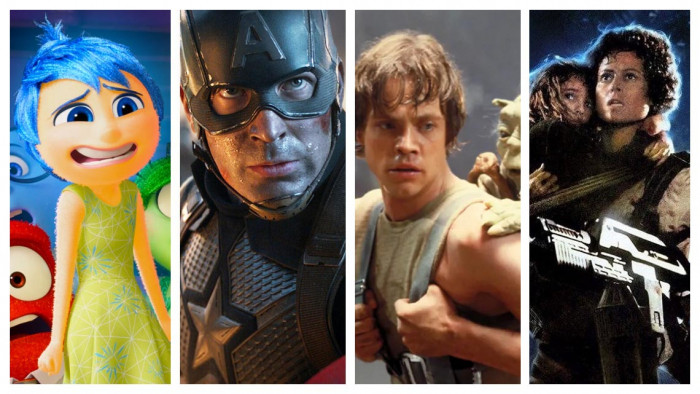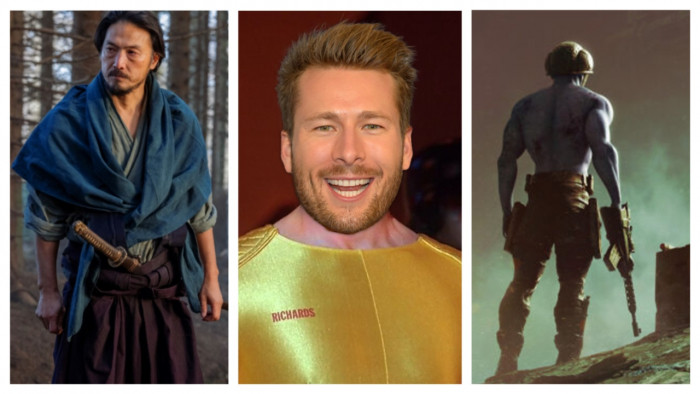Considering 90 minutes is the respectable running time for a feature film (add 100 for an Oscar contender), most people would expect the source material to take around the same amount of time to digest, if not longer.
Not that it always works that way, mind. A few films, some weighty award winners, others pop culture milestones, and even those morphed into classic action movies, have their origins rooted in the short story.
So we’ve had a think of the best novellas elongated for cinematic purposes that made the jump to the big screen superbly, and compiled our list below:
We Can Remember It for You Wholesale by Philip K. Dick (1966)
There’s much more separating Doug Quaid and Doug Quail - lead characters in 1990 film Total Recall and 1966 book We Can Remember It for You Wholesale, respectively - than slightly skewed surnames. Quail, a passive white collar desk clerk, is stuck on earth, while Quaid, a shoot-first-spout-one-liners-later sort of guy, spends most of his screen time slaying droves of bad guys when not scampering around Mars. Yet for all of these disparities, the book’s themes of memory implants and protagonist paranoia still translate superbly, confirming, if we didn’t know it already, that Phillip K. Dick was years ahead of his time.
_______________________________________________________
Breakfast At Tiffany’s by Truman Capote (1958)
Stylistically speaking, Truman Capote was a bundle of contradictions. On the one hand capable of such studiously macabre works as In Cold Blood, on the other adept at giving us wimsical, free-spirited novellas like his classic Breakfast At Tiffany’s - a novella almost experimental in tone, with Capote’s slight modification in prose seeping through to his later works. The reviews for the 1961 film adaptation weren’t too bad, either, much abetted by Audrey Hepburn’s unforgettable turn as county bumpkin turned Manhattan socialite Holly Golightly.
_______________________________________________________
Rita Hayworth and Shawshank Redemption by Stephen King (1982)
The Shawshank Redemption is a tremendous film. We know this. You know this. The two billion other people who own it on DVD also know this. Ramping Stephen King’s drama up instead of watering it down, Frank Darabont’s 1994 picture even managed to cram in an extra layer of tragedy as old-timer Brooks, finding no solace in freedom outside the prison walls, opts to hang himself in his new apartment – at odds with the original story where he ends his days in a retirement home. Sobering, his final act of carving ‘Brooks’ into the ceiling remains one of those cinematic moments sure that lumps in the throat were made for.
_______________________________________________________
Ghost Walker by Ian Mackenzie Jeffers (2012)
Liam Neeson has a particular set of skills; skills which he’s acquired over a very long career; skills which involve him turning unlikely film projects into resounding box office behemoths. 2011’s The Grey, like Taken, is one such example. Based on short story Ghost Walker by Ian Mackenzie Jeffers, it charts the survival of stranded Alaskan oil workers hunted by blood thirsty wolves following a plane crash, with Neeson on fine form as the sharpshooter who leads the fractious group thorough icicled and barren terrain. It shouldn’t work, but it does – terrifically, stretching out what really should be a short B-movie into a thought provoking battle between man and nature fraught with danger at every turn.
_______________________________________________________
A Christmas Carol by Charles Dickens (1843)
You’d have to have a heart made of a mint humbug not to appreciate The Muppets Christmas Carol, a fabulously colourful take on Charles Dickens’ festive masterpiece. Given extra significance for being the first Muppets film released after the death of Jim Henson, its all-star casting of Michael Caine as Scrooge worked out a masterstroke, fleshing out the five chapters of the short story into something fuller as the legendary actor booted a bevy of anthropomorphic creatures onto the snowy streets of 19th Century London to hammer home his rancour in style.
_______________________________________________________
The Double by Fyodor Dostoyevsky (1846)
A luckless, docile government clerk whose life is turned upside down when an aggressive doppelganger mysteriously enters his daily slog? Widely regarded as one of the best stories of the short variety, it was as high concept as it got back in 1846. Even Vladimir Nabokov, who openly considered Dostoyevsky's writing average at best, couldn’t hide his relish for The Double, citing the subconscious-invading tale as the pinnacle of his rival's legacy, and we imagine he might have also enjoyed Richard Ayoade’s recent big screen adaptation, too. Chronicled in as darkly warped fashion as the book, Jessie Eisenberg stars as the lonely (and possibly schizophrenic) lead who stumbles around an uncaring, unflattering world where suicide and social exclusion abound.
_______________________________________________________
A Tell Tale Heart by Edgar Allan Poe (1843)
Say what you like about 1915’s Birth Of A Nation (hopefully that it’s racist – because it is), it’s still regarded a game-changer, a piece of landmark cinema, cementing D.W. Griffith’s legacy as an all-time great director since. For a lesser appreciated work by Griffith, seek out his earlier effort The Avenging Conscience, a creepily fantastic combination of Edgar Allan Poe’s short A Tell Tale Heart and poem Annabel Lee. When a young romantic falls for a woman but is prevented from courting her by his uncle, he kills the old man and proceeds to build a wall to hide the body. Soon enough, as with Poe’s A Tell Tale Heart, he’s plagued by enough guilt to send him spiralling into madness as the police close in on his act. A bold project carried off with aplomb.
_______________________________________________________
Octopussy and The Living Daylights by Ian Fleming (1966)
Arguably more spoof sounding than any Austin Powers character, Octopussy (And The Living Daylights) was the 14th and final instalment in Ian Fleming’s James Bond canon, and oddly it wasn’t really a Bond story at all. On the contrary – the Octopussy instalment trailed chief villain Major Dexter Smythe, settling for a smaller appearance from 007 as the spy saved the day in bittersweet style, allowing his foe to commit suicide rather than face the music. Admittedly, not much of the story’s plot was used for the film, but it was the final act, this dark turn in Bond’s already maverick DNA, that, above all the source material, that has been echoed in a glut of EON produced flicks since.
[Images: AllStar, Rex Features, Youtube]
Latest
Related Reviews and Shortlists


The 10 best war movies of the 21st century









